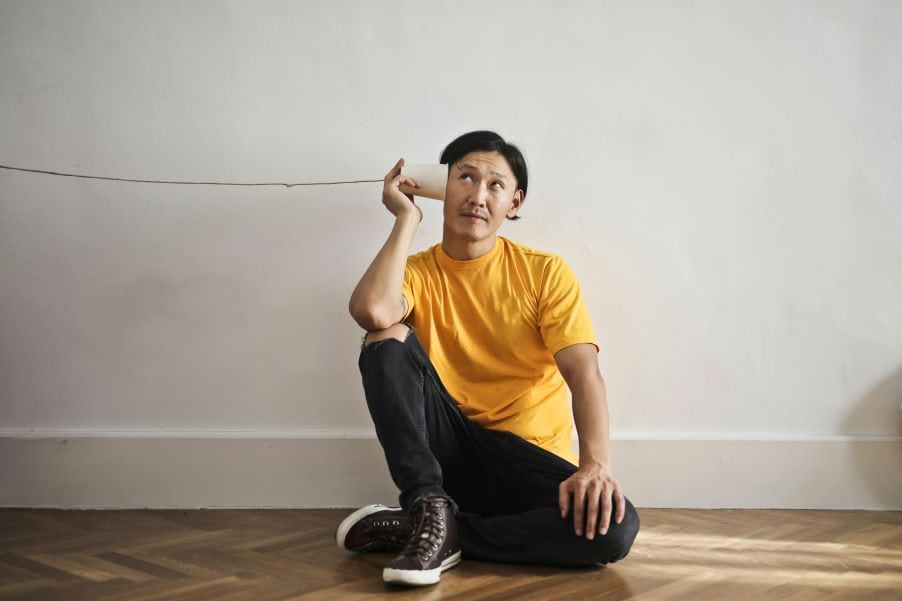Why Imposter Syndrome means you’re too confident.
Reading time: 6 minutes 14 seconds
What do a number of Oscar winners, Olympic champions, Nobel Prize winners, business titans, and presidents have in common?
They believe they are frauds. Any minute they will be found out for the con artists they are.
This phenomenon is commonly referred to as ‘imposter syndrome’. It is the idea that everyone else knows what they are doing except us. We are imposters and, at any moment, the game will be up and people will figure us out.
Albert Einstein was quoted as saying that he felt like “an involuntary swindler”. Maya Angelou in her masterpiece “I know why the caged bird sings” reveals her struggle with self-belief.
Tom Hanks, Natalie Portman, Sheryl Sandberg, Abraham Lincoln, Vincent Van Gogh, and Serena Williams have all said they felt they didn’t deserve the recognition or accolades they received.
THE PARADOX OF PSYCHOLOGY
Much has been written on imposter syndrome and how it holds you back. I want to do something different. I want to discuss a fascinating paradox at play in the world of psychology:
The more confident we are, the more likely we are to doubt ourselves.
Is this really true? How does this work? Most, importantly, how can we start believing in ourselves more AND overcome the imposter syndrome?
THE ROARING SEVENTIES
To answer these questions, we need to go back in time to an incredible period of discovery where three fascinating studies highlighted three important concepts in the field of psychology: The Overconfidence Effect, the Imposter Phenomenon and Prospect Theory.
In the late 1970s in a research lab at the University of Stockholm, Sweden, Ole Svenson studied whether people think they drive safer and better than others. He conducted this study with U.S. and Swedish students so he could also explore any cultural differences. The findings were striking.
88% of U.S. students interviewed believed they were above average in how safe they were as drivers. 93% of them believed they were above average in how skillful they were as drivers. Meanwhile, 77% of the Swedish students saw themselves as safer than average and 69% of them saw themselves as more skillful than average.
Crucially, this pointed to a belief that most people have, that they are better than they are. This is known as The Overconfidence Effect.
At roughly the same time, in Atlanta, Georgia, Pauline R. Clance and Suzanne A. Imes published a paper titled ‘The Impostor Phenomenon in High-Achieving Women: Dynamics and Therapeutic Intervention’. Clance and Imes interviewed a group of remarkable high-achieving women to understand their thoughts and feelings about their success.
Documenting the responses, Clance and Imes soon began to understand that many of them shared the same narrative: they didn’t deserve their success and soon they would be found out. They labeled this the Imposter Phenomenon which soon became known as the ‘Imposter Syndrome’.
One year later, at Tel Aviv University, Israel, Danny Kahneman and Amos Tversky published a paper entitled Prospect Theory. This theory painted a picture of the human mind as a flawed fortune-teller. They showed that people do not always make decisions based on rational assessments of probabilities and outcomes.
Instead, we make decisions under uncertainty by using intuitive reasoning guided by blind spots known as cognitive biases. Furthermore, our emotions play a part in influencing how we reason through things. Prospect theory soon became one of the most important papers in the field of what became known as behavioral economics.
So, we have one study showing we believe we’re frauds and another which suggests we are overconfident. Which is it? Do we typically undervalue ourselves or overvalue ourselves? How does prospect theory fit into all of this?
THE OVERCONFIDENCE EFFECT
“No problem in judgment and decision-making is more prevalent and more potentially catastrophic than overconfidence”
Scott Plous
‘The Overconfidence Effect’ suggests that we have a tendency to be overconfident about ourselves and the accuracy of our judgments. What’s interesting is that the overconfidence effect is more likely to be prevalent when the chances for success are near chance levels. So when people find themselves in a situation where they have a fifty-fifty chance of choosing correctly, THAT is when they are more likely to overestimate their chances of success.
The more accurate we are, the less likely we are to experience this effect. Indeed, often when our accuracy reaches 80% we are more likely to experience underconfidence. In a nutshell, the better we are, the more likely we are to be aware of how we might get it wrong.
There is one interesting outlier to overconfidence. When people regularly get feedback on their judgments (Weather forecasters for instance) they are less likely to experience overconfidence.
What is the core counterintuitive lesson here?
We are more likely to overestimate ourselves when we aren’t very sure of something.
IMPOSTER SYNDROME
The notion of imposter syndrome has become part of the corporate vernacular over the last twenty years or so. In my work as a keynote speaker, trainer, and executive coach I have met dozens of leaders that struggle with it.
Why?
In many ways, when I’ve listened to the narratives of self-doubt and being an ‘imposter’ and, indeed, when I’ve experienced it in different areas of my own life, there is something that I’ve seen countless times.
In order for us to feel like a fraud, we have to make certain judgments about ourselves. We have to assign to ourselves the authority and requisite expertise to suggest that we are correct in our assertion.
The imposter syndrome is usually the product of a voice inside our head that acts with a sense of conviction, sometimes known as our ‘inner critic’. Usually, when we attack ourselves and our self-worth we do so through this inner critic. When we call ourselves a fraud, the critic sounds pretty sure of itself. One could even argue that it is ‘overconfident’. To put this simply:
We tend to overestimate how accurate we are in our conclusions that we are an imposter. So, experiencing imposter syndrome means you are overconfident in your ability to evaluate how much of a fraud you are.
PROSPECT THEORY RETURNS
Let’s bring in the big insight from Prospect Theory. Kahneman and Tversky argue that we fail to think as effectively as we could to make decisions in uncertain conditions. We jump to conclusions erroneously because we fail to think things through.
We need to recognize our overconfident inner critic and challenge its hypothesis by using rational and probabilistic reasoning. We must avoid confusing certainty for accuracy.
HOW TO BE LESS CONFIDENT THAT YOU’RE AN IMPOSTER
Before being confident in yourself, it will help to become less confident of how much of a fraud you are.
Here are some ideas that will help:
1. Recognize the tendency in you to be overconfident in your judgments. Be prepared to accept you mightn’t have it all figured out as much as you think. How can you be good enough to make the judgment that you are not good enough?
2. Notice the inner critic and the authority it seems to wield in your head. The inner critic is always sure of itself but avoid confusing certainty with accuracy. Work with it and ask the inner critic to assign a probability of how likely you are to be a fraud.
3. Hunt for regular feedback on the results you are getting and the progress you are making. The more feedback you get consistently, the less likely you are to become convinced that you aren’t good enough.
4. Turn the inner critic into the inner motivator by imagining that is its intention. Allow any feelings of insecurity or uncertainty in your ability to motivate and drive you to work hard and become better as a result.
5. Spread the word and help other people who struggle with the same kinds of challenges to think differently about them.
So many incredible individuals throughout history were able to succeed despite imposter syndrome and so can we all. The key lies in understanding that just because we feel we’re not good enough doesn’t mean that we should listen to ourselves. And, if we do listen, we can choose to allow it to motivate us to become better.
There are two ways to respond to a critic. Ignore them or allow what they say to drive us forward to become more successful. Both approaches work. What we need to do is remember just because the critic sounds confident doesn’t mean they know what they’re talking about.
More than likely, it was the inner critic of Albert Einstein that called him ‘an involuntary swindler’. I can’t help but imagine if that same inner critic was responsible for Einstein’s discoveries, the famous formula E = mc2 we have heard of, would go like this:
“E probably will never end up as good as mc2.
And very soon, E will be found out.”
Thanks,
Owen.
P.S. If you are interested in catching up on any of the past editions of Inner Propaganda, you can find them all here.





